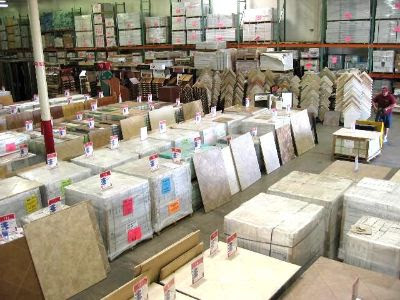
Trying to find a legitimate company to buy flooring from can sometimes be very difficult. In this article I will discuss the pros and cons from purchasing at outlet stores. Outlet stores are supposedly known for having the best deal in town. What you have to realize is that, what you are about to purchase may or may not be first quality material. Another problem you may face is that, all sales are final. Many items purchased at outlet stores are not returnable. Outlet stores are also famous for purchasing odd lots of materials. Here is a scenario. You measure your home for ceramic tile and find that you need 700 square feet. You go to the local outlet store and purchase the material. As you are about to finish up the job you realize that you miss-measured and need an additional 80 square feet. You go back to the store only to realize that there is none left and you are not able to get the additional 80 square feet you need. Do not be fooled, there is a reason this stuff is so cheap. Also do not believe everything the salesperson tells you. Remember, the sales person will often say what ever it takes to make a sale. One of the biggest problems to purchasing at these places is that you have to arrange for an installer to come to your home. If you decide to purchase through a retail-flooring store this is usually done for you.
There are some benefits to purchasing a flooring outlet stores. If price is the driving force in you decision and you are not particular, purchasing at these stores can be very beneficial. Another benefit to purchasing at outlet stores is that the material is generally in stock and ready for delivery. Many of these businesses are geared towards selling the product as cash and carry. The bottom line is: Outlet stores can save you la lot of money, but in reality could cost you more.
If you are planning to purchase floor covering, be sure to check the references of the store you are planning to purchase at. It is a good idea to check with the Better Business Bureau before purchasing anything. Here is an example. Just recently in Jacksonville Florida, a company called Floor Territory went out of business. During the 2008 calendar year this company had 11 complaints with the Better Business Bureau (BBB). Over the last couple of weeks the owner of this company proceeded to take deposits from customers for flooring, only to run off with their money and file bankruptcy. Had these customers checked with the Better Business Bureau first, the outcome might have been different? The moral of the story: Be careful where you buy.
Comments
Post a Comment